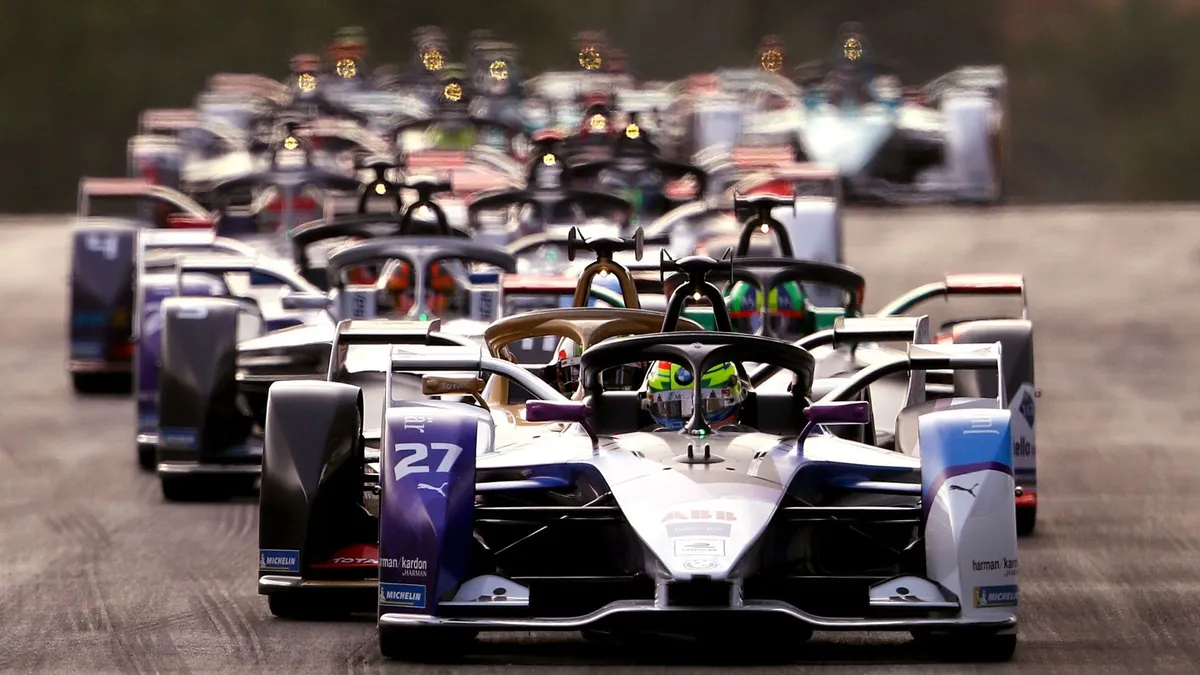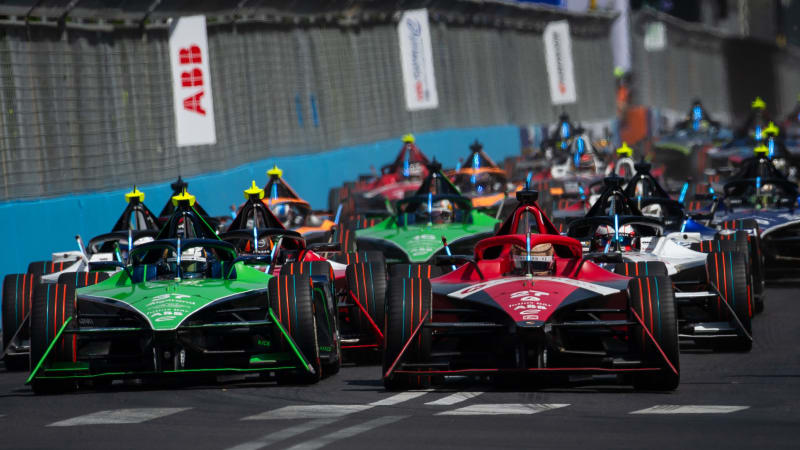Legacy automakers striving to catch up with electric vehicle (EV) leaders like Tesla are turning to their Formula E electric racing teams for insights and innovations.
While Formula E has faced challenges in winning over traditional motorsports enthusiasts, legacy automakers with electric teams emphasize the importance of the racing series in driving advancements.
Formula E cars commence each race with only 60% of their required battery capacity, relying on regenerative braking to generate the remaining power.
Despite Formula E’s struggle to match the audience of Formula One, automakers argue that the intense competition in maximizing or regenerating power in the electric racing series aids in the development of more efficient motors, inverters, and software to enhance overall performance and range.

Tata Motors’ Jaguar Land Rover, committed to investing £15 billion ($19 billion) in catching up with EV production, plans to incorporate silicon carbide inverter technology from its Formula E cars into its next-generation premium EVs.
The technology transfer extends beyond hardware, with Jaguar Land Rover leveraging insights into managing battery temperatures gained from Formula E to enhance the range of its Jaguar I-Pace EVs through over-the-air updates.
Nissan, also in the pursuit of electric dominance with 19 fully electric models planned by 2026, reveals a strategy of knowledge transfer from its Formula E team to its mass-market EV lineup.
The racing car’s software, initially based on the Nissan Leaf, serves as a foundation for more efficient motors, inverters, and smaller battery packs for consumer-friendly EVs.
Porsche, rather than merely extracting technology from its Formula E team for luxury EV development, has redeployed top engineers from the racing program to work on road models, showcasing a commitment to talent transfer alongside technological advancements.
However, not all automakers follow the same path. BMW exited Formula E in 2021, citing the exhaustion of technology transfer opportunities, while Mercedes withdrew from Formula E and leveraged its Formula One team to design more efficient EVs.
Ford, on the other hand, plans to return to Formula One racing in 2026 as a platform for EV development.
Despite varied approaches, Formula E founder Alejandro Agag asserts that manufacturers committed to the racing series view it as a valuable laboratory for testing technologies.
He specifically highlights fast charging as a key area where Formula E teams have made significant progress. Stellantis, aiming to roll out a range of electric models, is utilizing insights from its upscale DS brand Formula E team to expedite EV development across its other 13 brands.
Eugenio Franzetti, DS Performance director, underscores the rapid technology transfer occurring in the electric revolution, emphasizing that findings from Formula E will swiftly influence developments in mass-market EVs.

